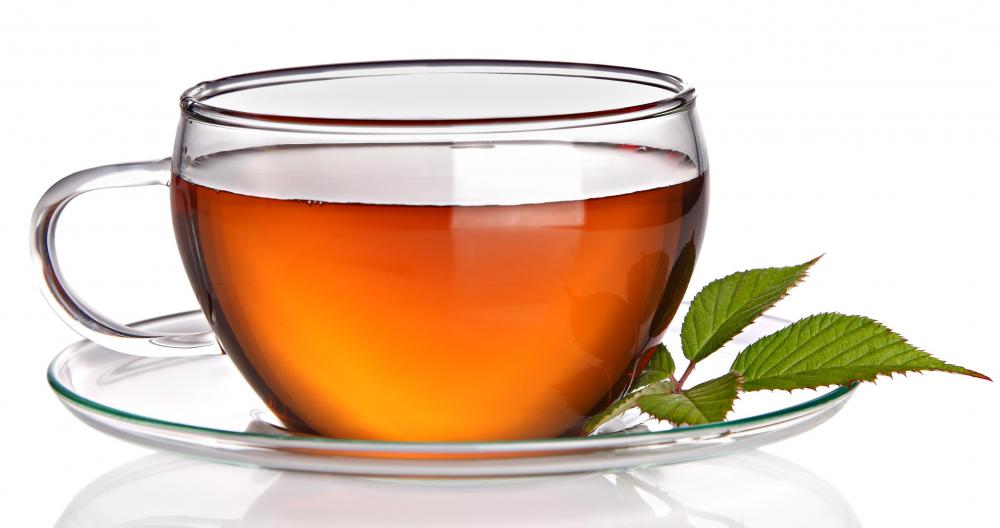At TheHealthBoard, we're committed to delivering accurate, trustworthy information. Our expert-authored content is rigorously fact-checked and sourced from credible authorities. Discover how we uphold the highest standards in providing you with reliable knowledge.
What Are the Signs of an Allergic Reaction to Tea?
An allergic reaction to tea is similar to any other type of anphylatic reaction. Among these signs and symptoms are flushing, irritation, swelling, and an increase in respiratory mechanisms often accompanied by a difficulty breathing. If a person has recently consumed tea or a product with any amount of tea traces in it and is showing these symptoms, it is possible that he or she is experiencing an allergy to tea.
An object that causes an allergic reaction is known as an allergen, and particular allergens are based genetically upon an individual's immune system. An allergic reaction to tea, for example, is due to it being an allergen to the person suffering. It is important to identify the specific allergens responsible for causing anaphylaxis, as doing so will help a person to avoid such objects, creatures, or products and better prevent any adverse experiences. People are allergic to a variety of things, from livings animals to food products, and in rare cases, allergies may even include things such as light.

Although all types of tea are derived from the same plant, teas can differ from each other based on processing and harvesting techniques. While being processed, it is possible that tea is modified with other ingredients, perhaps even contacting other food products through unintentional means. This means that an allergic reaction to tea may be due to an ingredient in the beverage rather than the tea itself. Being aware of these possibilities will help people successfully determine whether it is tea or a different substance causing the discomforts of anaphylaxis.

People can think of an allergic reaction as an overreaction of the body. When a foreign substance contacts or enters, it is physiologically regular for the body to examine the substance and react to its presence. When this reaction is overzealous, however, allergic signs and symptoms will present themselves. Heavy breathing, an increase in heart and respiration rates, a redness of the skin, and itching are among the first symptoms of allergic reactions. These symptoms may be minor, such as a bee sting causing swelling in an isolated area, or severe, as in the case of airway passages becoming obstructed due to swelling. Treatments for allergic reactions are usually oral, as in the case of a steroid or antihistamine, or may be injected, which is the method of delivery for an epipen, or an epinephrine injection.

If someone has recently consumed tea and is experiencing a number of these symptoms, it is likely that he or she is having an allergic reaction to tea. Remaining calm is an important first reaction as any panic will only worsen the symptoms. Medical assistance should be sought immediately following the incident. It is best for those susceptible to severe allergic reactions to carry possible treatment measures as prescribed by a medical professional.
AS FEATURED ON:
AS FEATURED ON:
















Discussion Comments
@Ruggercat68, that's why I get a little nervous whenever I try a new herbal remedy from a health store. I like to drink those medicinal teas instead of taking too many over-the-counter drugs for things like sleep or anxiety. You should see the ingredient list on some of these medicinal teas. I haven't any problems so far, but this article let me know an allergic reaction is possible.
I've never heard of anyone having an allergic reaction to regular black or green tea, but I have heard of people have bad reactions to medicinal or herbal teas. There may be some ingredient in those kinds of tea that most people have never even heard of before. It would be really hard to know ahead of time if you were allergic to a rare herb or spice in an herbal tea blend.
Post your comments